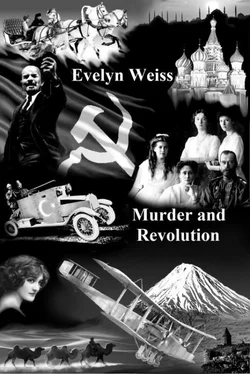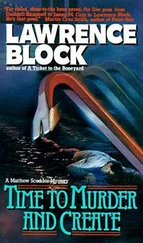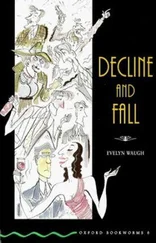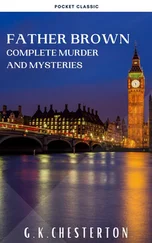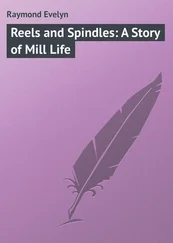The professor is listening carefully. “Your Majesty, I had heard such rumors myself. If they are true, why do the Tsar and Tsarina have such faith in him?”
“The Tsarina believes Rasputin to be a genuine mystic, a kind of faith-healer for her young son Alexei. The boy suffers, as you may know, from the blood disease hemophilia. She and her husband seem blind to Rasputin’s vices.
However, Svea Håkansson had found conclusive evidence against him. I don’t know the details – but she assured me it was sufficient to topple Rasputin from power.
In late July, Miss Håkansson visited the Tsarina at the imperial palace at Ivangorod, on the Gulf of Finland. On July 29 th, at two o’clock in the afternoon, a servant found Miss Håkansson’s body. She had been shot in the side of the head. Apart from confirming that she died instantly, we have received no other information from Russia about the details of the murder.
The Russian police concluded, for reasons known only to them, that the murderer is a member of one of Russia’s revolutionary factions. Revolutionary violence in Russia is increasing at an alarming rate, and the police see this as just one more example.”
The professor wrinkles his brow. “But your Majesty, surely the Russian authorities must suspect certain individuals?”
“No, Professor. The police are content to put the responsibility collectively on the revolutionaries. You see, they have no concrete evidence, and it suits them politically to lay blame in this way. They have already closed their investigation.”
Axelson frowns. Is it to shade his eyes in the sunshine, or a mark of concentration? There’s a silence before he responds.
“Your Majesty. You asked me to come to Drottningholm Palace to give you my advice. But is it really advice that you seek?”
“You are indeed a gifted psychologist, Professor. You see straight through me. You, and I, already know what would be the most useful action in this situation.”
“You mean, your Majesty, that you would like me to investigate this murder?”
“As you have mentioned the idea, Professor, I will indeed be so bold as to ask for your assistance. You are to become a Commander of the Royal Order of the Polar Star – but some Swedes may ask why you should receive such an honor. You have a most impressive string of achievements – in America, England and France. Some may say: ‘What has Felix Axelson done for Sweden?’ But of course, the choice whether you take on the case is entirely yours.”
“There is an obstacle, your Majesty. The Russian police are hardly going to permit foreign interference.”
“I have something to show you, Professor.” The king holds out a letter; it flutters in the gentle breeze. The professor and I hold it still, and we read.
“Dear Gustaf
I write to express my most sincere condolences for the death of Svea Håkansson. Please accept my deepest sympathy.
As you will know, the Russian police have already concluded their investigation, and have found no culprit. I am aware that this is not a satisfactory conclusion. It must be frustrating for you, and for the whole nation of Sweden, to know that justice has not yet been done.
In view of the strange circumstances of Miss Håkansson’s death, I can understand that you might wish to send your own representatives to investigate the case. If you do decide to send agents from Sweden, I would personally ensure that they receive the fullest support from all the relevant authorities in Russia.
Her Imperial Majesty Alexandra Feodorovna Tsarina, Empress of All The Russias.”
Axelson nods to himself as he reads the letter. Then he looks at the king. “I know why she has sent this. She has her own purpose: she wants to quell rumors. You will be aware, your Majesty, that the Swedish newspapers are full of speculation about the Håkansson case. They say that no-one has been arrested for the crime, because the murderer is in fact Rasputin himself.”
We’ve reached a grove of oak trees, and we walk through patches of light and shade under the green canopy, as Gustaf V replies.
“Yes, Professor. I am aware of what the papers are saying. They say that Rasputin was in Ivangorod, visiting the Tsarina, at the time of Miss Håkansson’s death.”
“Indeed, your Majesty. If Svea had evidence that would bring about Rasputin’s fall from power, that would give him a strong motive for murder. But the Russian police haven’t arrested him. Perhaps they have evidence against Rasputin, but they dare not put him on trial, because he is too powerful?”
The king absent-mindedly pulls down an acorn from a low-hanging branch. It’s tiny: the first sign of the coming fall. He rolls it between his fingers as he looks at Axelson.
“Rasputin is a spider that weaves many webs. Naively, the Tsarina believes that he could not possibly be behind this murder. She thinks a Swedish investigation will clear his name. But I am not so sure that it will. So if you do decide to go to Russia, Professor – tread carefully. Tread very carefully indeed.”
A large Swedish flag, showing our neutrality, flaps lazily above the professor and me as we lean on the rail of a small passenger steamer. Smooth ripples stretch out from the prow of the moving ship. The Baltic, under a warm early-morning summer sky, is like a dream. I’ve seen no sea like it: the calm water is still, like blue glass. But on both sides I notice that the horizon, which an hour ago was empty, is now lined with dark pines.
“We are entering the Gulf of Finland, Miss Agnes. On either hand we have provinces of the Russian Empire: Estonia to the south, Finland to the north.”
“How long until we arrive, Professor?”
“Just a few hours. By noon, we should be sailing up the Narva River to Ivangorod.”
As the sun climbs in the sky, the shoreline grows nearer. I see fishing boats on the water, and little villages among the trees, but my mind drifts off into thought. I recall the words of that conversation with Gustaf V. The feeling that I had in Stockholm comes back to me: that the king lured Axelson into this mission. The professor and I are pawns, who do not understand the game being played around us.
It’s now midday. Just as the professor said, we are approaching our destination. The Narva River is a wide, calm inlet of the sea, narrowing as we sail along. Ahead of us, like a pair of bookends, two ancient castles stand on either bank of the river. The professor says that Narva Castle is on the right, Ivangorod on the left. Our ship pulls towards the left-hand bank.
Below the towering walls of the fortress, Ivangorod harbor is a mass of movement; ships are docking, men hailing, throwing ropes to the arriving vessels. Other men trundle bales and boxes along the quayside in handcarts. Horses pull wagons; I see no motor vehicles anywhere. As we descend the gangway, a round-faced man with a pince-nez extends his hand to the professor, and bows low to me.
“Miss Frocester, Professor Axelson! Welcome to Russia! I am Vasily Bukin, your companion for your visit to our land.”
His friendliness has an old-fashioned air; he smiles broadly at the professor, but lowers his eyes respectfully at me. He’s dressed in a sober suit that would be twenty years out of fashion in the States or Europe. His age is maybe early forties, or even late thirties, but his formal air makes him seem much older. His words of greeting and well-wishing go on for several minutes.
Finally, he shows us a boat. It’s a kind of low-hulled sailing yacht, pulled up against the quayside behind our steamer. The single member of the boat’s crew stands in the shadow of the sails, waiting for us. Mr Bukin bids us to get on board.
“Here. This is our transport to Tri Tsarevny.”
Читать дальше
